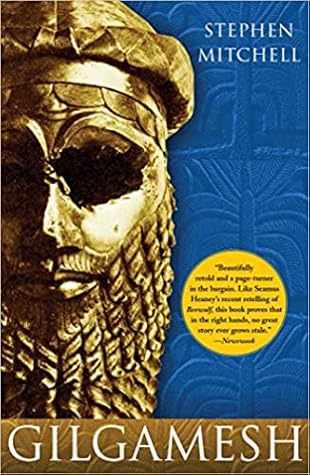More on this book
Community
Kindle Notes & Highlights
the attack on Humbaba stems from what Pascal called the cause of all human misery: the inability to sit contentedly alone in a room.
“The struggle between good and evil / is the primal disease of the mind,” wrote the sixth-century Zen master Seng-ts’an, who knew what he was talking about. It is all too easy to see ourselves as fighting on God’s side, to identify our ideology with what is best for the world and use it to justify crusades, pogroms, or preemptive attacks. Projecting evil onto the world makes me unassailably right—a position as dangerous in politics as in marriage.
Shiduri sends him on to the next stage of his journey, but not before giving him a charming piece of conventional wisdom that can do him no earthly good. (No advice can. He needs to come to wisdom by himself.)
“Savor your food, make each of your days a delight, bathe and anoint yourself, wear bright clothes that are sparkling clean, let music and dancing fill your house, love the child who holds you by the hand, and give your wife pleasure in your embrace. That is the best way for a man to live.
“Aruru, you are the one who created humans. Now go and create a double for Gilgamesh, his second self, a man who equals his strength and courage, a man who equals his stormy heart. Create a new hero, let them balance each other perfectly, so that Uruk has peace.
He tried to catch up, but his body was exhausted, his life-force was spent, his knees trembled, he could no longer run like an animal, as he had before. He turned back to Shamhat, and as he walked he knew that his mind had somehow grown larger, he knew things now that an animal can’t know.
They embraced and kissed. They held hands like brothers. They walked side by side. They became true friends.
“Yes: the gods took Enkidu’s life. But man’s life is short, at any moment it can be snapped, like a reed in a canebrake. The handsome young man, the lovely young woman—in their prime, death comes and drags them away. Though no one has seen death’s face or heard death’s voice, suddenly, savagely, death destroys us, all of us, old or young. And yet we build houses, make contracts, brothers divide their inheritance, conflicts occur—as though this human life lasted forever. The river rises, flows over its banks and carries us all away, like mayflies floating downstream: they stare at the sun, then
...more


